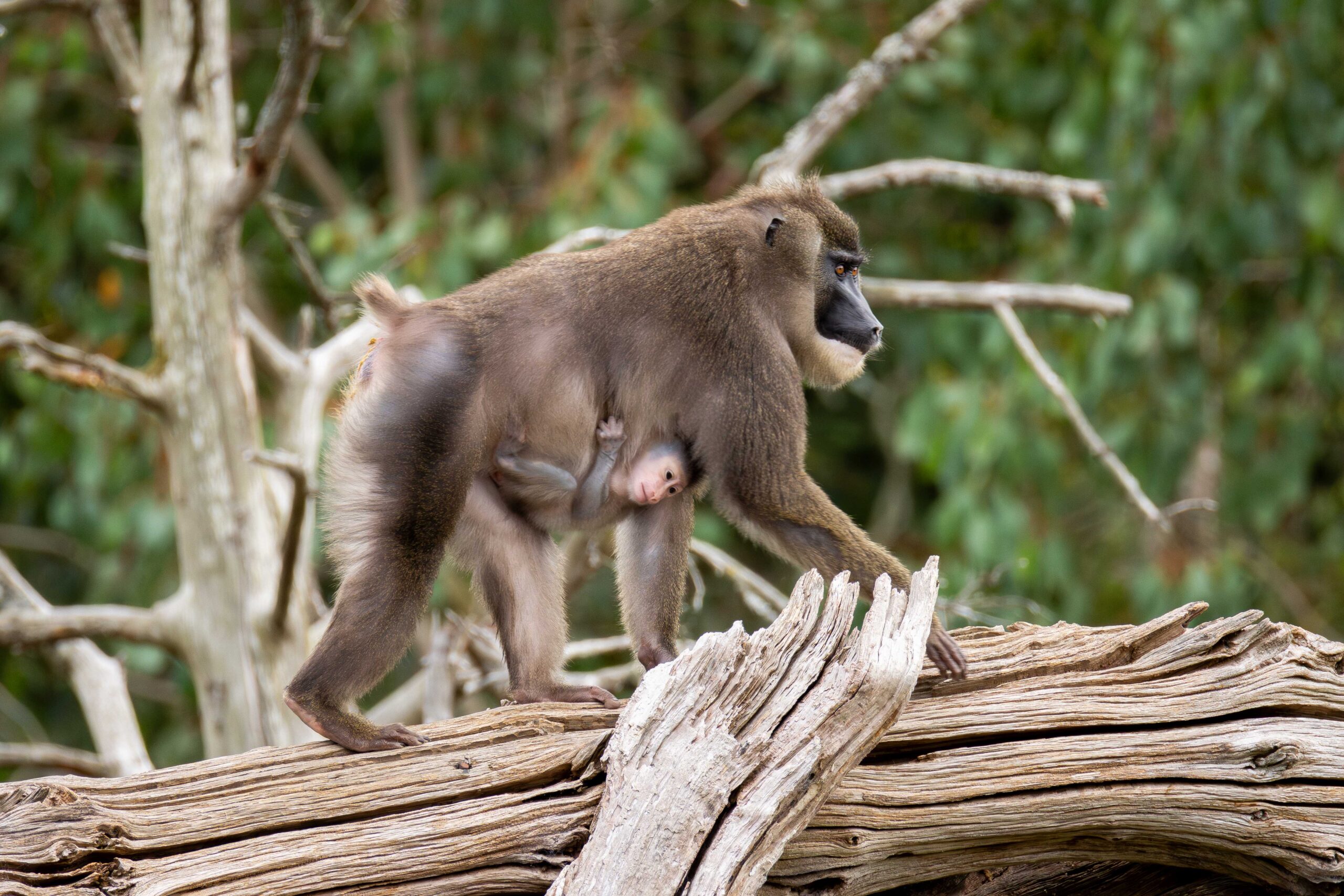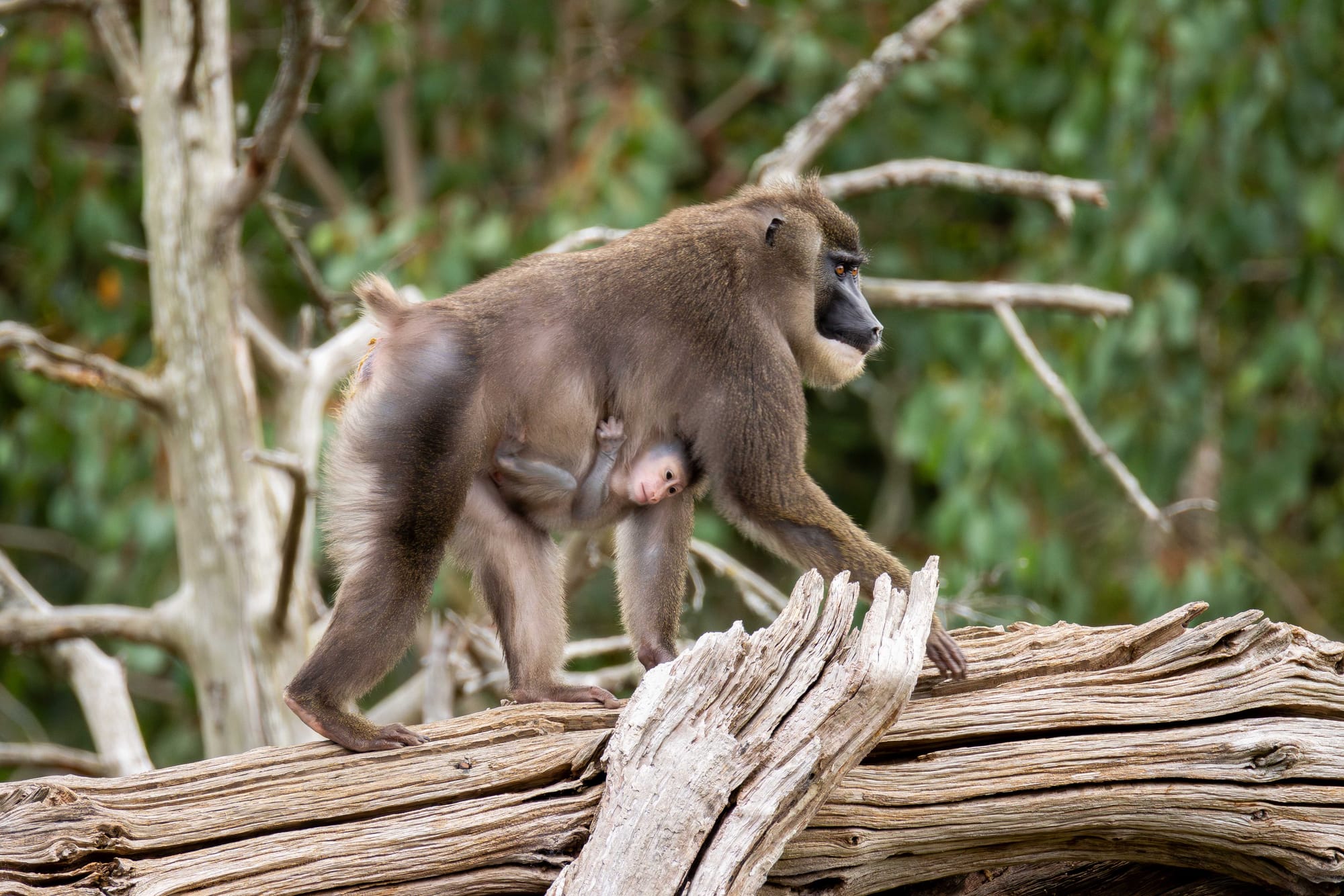Fota Wildlife Park Celebrates Historic First with Birth of Endangered Drill Monkey
Ireland's first drill monkey born at Fota Wildlife Park - rare conservation win for endangered species with only 4,000 left in wild.

A rare conservation success has been achieved at Fota Wildlife Park with the birth of Ireland's first drill monkey, offering hope for a species that has seen its wild population halve in just three decades.
The male drill monkey, born on 18 July to nine-year-old mother Lewa and ten-year-old father Ekona, represents a significant milestone for the County Cork conservation centre. The birth is part of a European Endangered Breeding Programme (EEP) aimed at protecting the critically threatened primate species.
With fewer than 4,000 drills remaining in the wild, the species faces severe pressure from habitat loss across their limited range in Nigeria, Cameroon, and Equatorial Guinea. Their entire natural habitat spans less than 40,000 square kilometres, roughly half the size of Ireland.

Lead Ranger Teresa Power:
"We're absolutely thrilled to announce the birth of this baby drill, it's a first not only for Fota Wildlife Park but for Ireland as well. The drill is an incredibly rare and endangered species, so it's a real privilege to be part of the conservation and care of the species."
The new mother is proving to be exceptionally attentive to her firstborn. Power added: "Lewa, the new mother, is doing an excellent job. She's very protective, and the young male is nursing well, this is her first baby."
Currently, Lewa and her infant are being housed separately from the main group, accompanied by Banni, a younger female who is showing keen interest in the newborn. This arrangement serves a dual purpose: protecting the vulnerable infant while providing valuable learning opportunities for Banni, who may become a mother herself later this year.
Teresa explained:
"We're hopeful that Banni may give birth herself later this year, and she's already learning valuable maternal behaviours from observing Lewa."
Visitors hoping to catch a glimpse of the young primate, who sports the distinctive black cap of hair typical of drill infants, can observe him with his mother at the park's purpose-built drill habitat and island. The youngster's precocious nature is already evident, with staff noting his early attempts at independence.
"We often see them trying to wander off as early as two weeks old! Lewa, however, is quick to pull him back and keep him close," Teresa noted.
The park plans to reunite the family group once the infant becomes more independent. Adult male drills are impressive creatures, weighing around 33 kilograms and displaying vibrant colours of lilac, blue, pink, and purple on their rumps.
In a move to engage the public with this conservation success, Fota Wildlife Park is inviting visitors to suggest names for the young male through their website. The winner will receive a year-long Conservation Annual Pass to the park.
The birth adds to Fota Wildlife Park's impressive conservation portfolio, which includes over 100 animal species, many endangered or at risk of extinction. The park actively participates in breeding programmes for species including Asian lions, Indian rhinos, Northern cheetahs, and red pandas.
For those eager to meet Cork's newest endangered resident, the park is open daily from 9:30am, with tickets available online at www.fotawildlife.ie.

